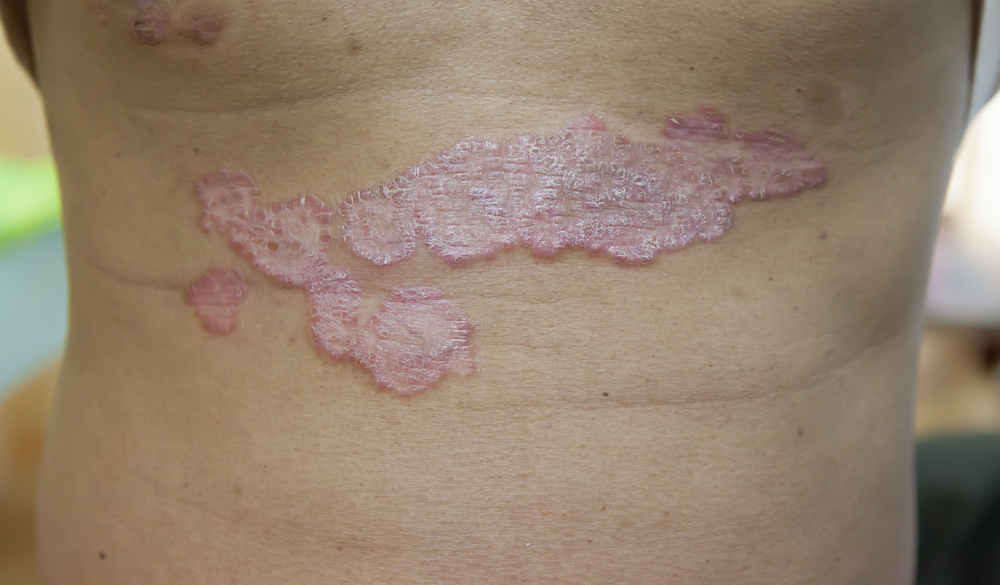Dr. Ted Rosen reports on the FDA’s recent approval of deucravacitinib, the first drug in its class for treatment of moderate to severe plaque psoriasis in patients who are candidates for systemic therapy and phototherapy.
Ted Rosen, MD, FAAD
Editor-in-Chief
As the first drug in its class, deucravacitinib (Sotyktu, Bristol Myers Squibb) has received FDA approval for the treatment of moderate to severe plaque psoriasis in patients who are candidates for systemic therapy and phototherapy.
Deucravacitinib is a selective Janus kinase (JAK) inhibitor, targeting the tyrosinase kinase 2 (TYK2) pathway. By inhibiting TYK2, the drug interferes with signaling of interleukin (IL) 12 and 23, along with type 1 interferons. These are all key cytokines involved in the pathogenesis of multiple immune diseases, including psoriasis.
Approval was based on the results of two phase 3 trials (POETYK PSO-1 and POETYK PSO-2). In those trials, subjects were randomly assigned to receive either 6 mg daily of deucravacitinib, daily dose of placebo, or a 30-mg twice-daily dose of apremilast (Otezla, Amgen).
The primary endpoints of the pivotal studies included the percentage of patients who achieved a Psoriasis Area and Severity Index (PASI) 75 response and a static Physician’s Global Assessment (sPGA) score of 0 or 1 (clear or almost clear) at 16 weeks.
At 16 weeks, 58% and 53% of patients receiving deucravacitinib in the POETYK PSO-1 and POETYK PSO-2 studies, respectively, achieved PASI 75. These results compared very favorably to PASI 75 of 13% and 9% of those receiving placebo and 35% and 40% receiving apremilast. All results for deucravacitinib were statistically significant.
PASI 75 response associated with deucravacitinib was maintained while therapy was continued to 52 weeks duration. A presentation at the most recent annual meeting of the European Academy of Dermatology and Venereology disclosed that there was no change in rates of PASI 75, PASI 90, and sPGA of 0/1 between 16 weeks, 52 weeks, and 112 weeks of continuous therapy.
Similarly, in the POETYK PSO-1 and PSO-2 studies, respectively, about 54% and 50% of those on deucravacitinib achieved an sPGA of 0/1 at 16 weeks, compared with only 7% and 9% of those receiving placebo, and 32% and 34% of those receiving apremilast. Results favoring deucravacitinib were statistically significant.
An analysis of patients with scalp disease in the pivotal studies showed that nearly 71% achieved sPGA of clear or almost clear by week 16.
At study conclusion (16 weeks), the most common adverse events that affected at least 1% of patients on deucravacitinib and that occurred at higher rates than in placebo recipients were upper respiratory infections (19.2%), increases in serum creatine phosphokinase (2.7%), herpes simplex (2%), mouth ulcers (1.9%), folliculitis (1.7%), and acne (1.4%).
More patients overall receiving deucravacitinib compared to placebo developed infections (28% versus 22%), but these were generally mild to moderate, and did not lead to drug discontinuation.
Adverse events of any type resulting in discontinuation of treatment were reported in 2.4% of patients receiving deucravacitinib, 3.8% of those receiving placebo, and 5.2% of those receiving apremilast.
Because of its selectivity for TYK2, as opposed to JAK1, JAK2, and JAK3, deucravacitinib labeling does not share the boxed warnings about off-target adverse events, such as those on the cardiovascular system that can be found in the labeling of other JAK inhibitors.
Deucravacitinib appears to be a welcome addition to the systemic oral armamentarium against psoriasis. It also is under study for psoriatic arthritis.
Suggested Reading:
- SOTYKTU (deucravacitinib) tablets’ package insert: https://packageinserts.bms.com/pi/pi_sotyktu.pdf
- Armstrong AW, Gooderham M, Warren RB, et al. Deucravacitinib versus placebo and apremilast in moderate to severe plaque psoriasis: Efficacy and safety results from the 52-week, randomized, double-blinded, placebo-controlled phase 3 POETYK PSO-1 trial. J Am Acad Dermatol. 2023 Jan;88(1):29-39. doi: 10.1016/j.jaad.2022.07.002. Epub 2022 Jul 9. PMID: 35820547.


